This article of How to Start an Organic Pig farm deals with the process of starting an organic pig farm beginning from pig conversion from regular to organic to feeding and slaughtering them in an organic and humane manner as possible.
Benefits of an Organic pig farm
An organic pig farm is the raising of pigs without using any synthetic medicines, growth hormones, unnatural diet or unnatural living conditions as in factory farms. Starting an organic pig farm is a good idea in many ways. Intensive factory farms are harmful to the welfare of pigs, the environment and for consumers.
Organic pig farming, on the other hand, has minimal effects on the environment and safeguards the rights of animals. They are also much healthier meat options for humans than the heavily drugged and miserable cheap meat mass-produced from factory farms. Let us now look at how to start an organic pig farm in 7 easy steps.
How to Start an Organic Pig farm
Step 1: Conversion
Pigs are not organic in general due to being mass-produced using artificial drugs for many years. Before starting to raise organic pigs, you must convert non-organic pigs to organic ones. Sows undergo a conversion period by producing off-spring that are organic.
The conversion period to a fully organic pig can take up to three years. There will be a lot of inspection and monitoring needed in between. Breeding boras too from non-organic farms are bought and fed an organic diet during conversion. Artificial insemination can happen but with restrictions.
If you don’t have the means to convert a non-organic pig to an organic one, you can buy organic piglets from a trusted organic farm.


Step 2: Plan your budget and the size of the farm.
How to start your farm depend on many factors like the size of your farm, your budget, and the amount of money and time you are able to dedicate to the business. You need quite an amount of space to raise organic pigs as they are not caged like in factory farms. You cannot raise a single pig on an organic farm because pigs are social animals that live in herds. Living alone will put a lot of stress on them. So the minimum amount of pigs you have to raise is two.
Please refer to this article for the cost of starting a pig farm to get an idea of how much you can expect to spend.
Step 3: Plan your space and housing
Raising organic pigs requires outdoor space. They must be allowed to express their natural behaviors of rooting, foraging and nesting. They must have plants and greenery. They need soil and mud to wallow in. It would be ideal if you already own sufficient land. Or else you would have to rent a suitable space. The cost of renting space depends on the state in which you live.
While pigs have to be given adequate freedom, they also have to be fenced in. Because pigs are notorious for escaping and protecting themselves from predators. Fencing will cost you a lump sum as they have to be sturdy and strong enough. They should preferably be electrically wired for additional protection. Pigs are strong creatures, and flimsy fencing will be toppled easily.


The housing can be a simple barn or shed with enough hay or litter or keep them comfortable. Housing must also have heat lamps to keep them warm. Pigs cannot regulate their own temperature well, so they must be provided with the right temperature. Moreover, good land rotation is essential as the use of synthetic fertilizers, herbicides, and pesticides is undesirable.
Step 4: Buying your pigs and feeding them
If you are not converting your pigs to organic ones, then it’s best that you buy organic piglets from an authentic source. Once that is done, the next job is to feed and water them well.
You may need a good, heavy trough for food and water as a bucket can easily be toppled over, causing wastage. Organic feed is the most important aspect of organic pig farms. Buy feed from an authentic source, or you can also make your own. Pigs are omnivores and will eat just about everything. But the food you give them also has to be cost-effective for you.
Step 5: Heath and treatment
In organic farms, diseases and illnesses are kept to a minimum because pigs live healthy lives following their natural instincts and are fed good food, unlike in factory farms. But illnesses may occur.
One of the main features of an organic pig farm is that absolutely no artificial drugs are used. Farmers use conventional medicines and treatments. Natural medicines and treatment is used as much as possible, but in cases where illness cannot be treated by such medicines, then standards do permit the use of other effective medicine and treatment. Prohibited inputs include organophosphate treatments, routine veterinary treatments and unauthorized feeding of growth hormones. Practices prohibited in organic pig farming are ringing,
farrowing crates, castration, tail docking, teeth cutting or grinding, and prophylactic uses of iron injections. In general, organic standards recommend the use of homeopathic medicine over synthetic chemical medicines.
Step 6: Slaughtering your pigs
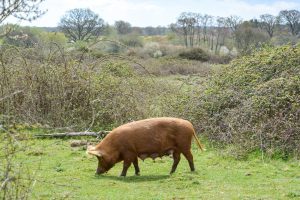

Slaughtering pigs must be done as humanely as possible. You don’t want to slaughter one in front of another and cause them undue distress. Do not use chemical baths to stun them, as that would be against the concept of organic pig farming.
Step 7: Marketing your pigs
Though I have mentioned this step at last, finding your market should be the first step before starting your farm. You must also have a certification for your organic farm from the state. Use this to market your meat at a price premium over regular factory-produced meat. It would help to start a website for your farm and market your meat on all social media platforms. If your farm is small-scale, you could sell it to the local grocery store.
How to Start an Organic Pig farm: Conclusion
Unlike regular pig farming, organic pig farming requires a level of knowledge and expertise. It is also more challenging as you don’t use any artificial medications in case of illnesses, and you have to be particular about what you feed them. It’s always a bonus to get your organic meat certified, even if it costs you extra, as there are many consumers who are particular about the source of meat they eat.
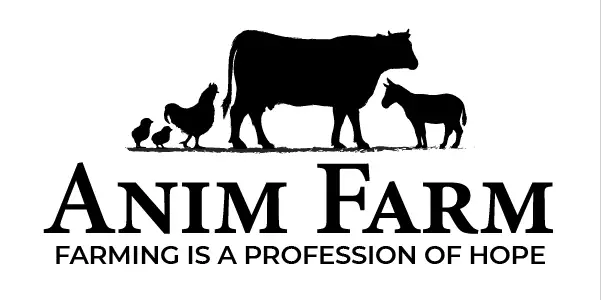
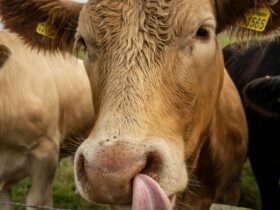
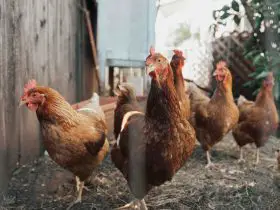

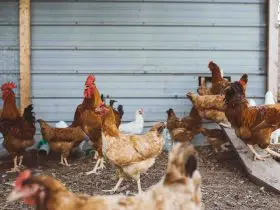
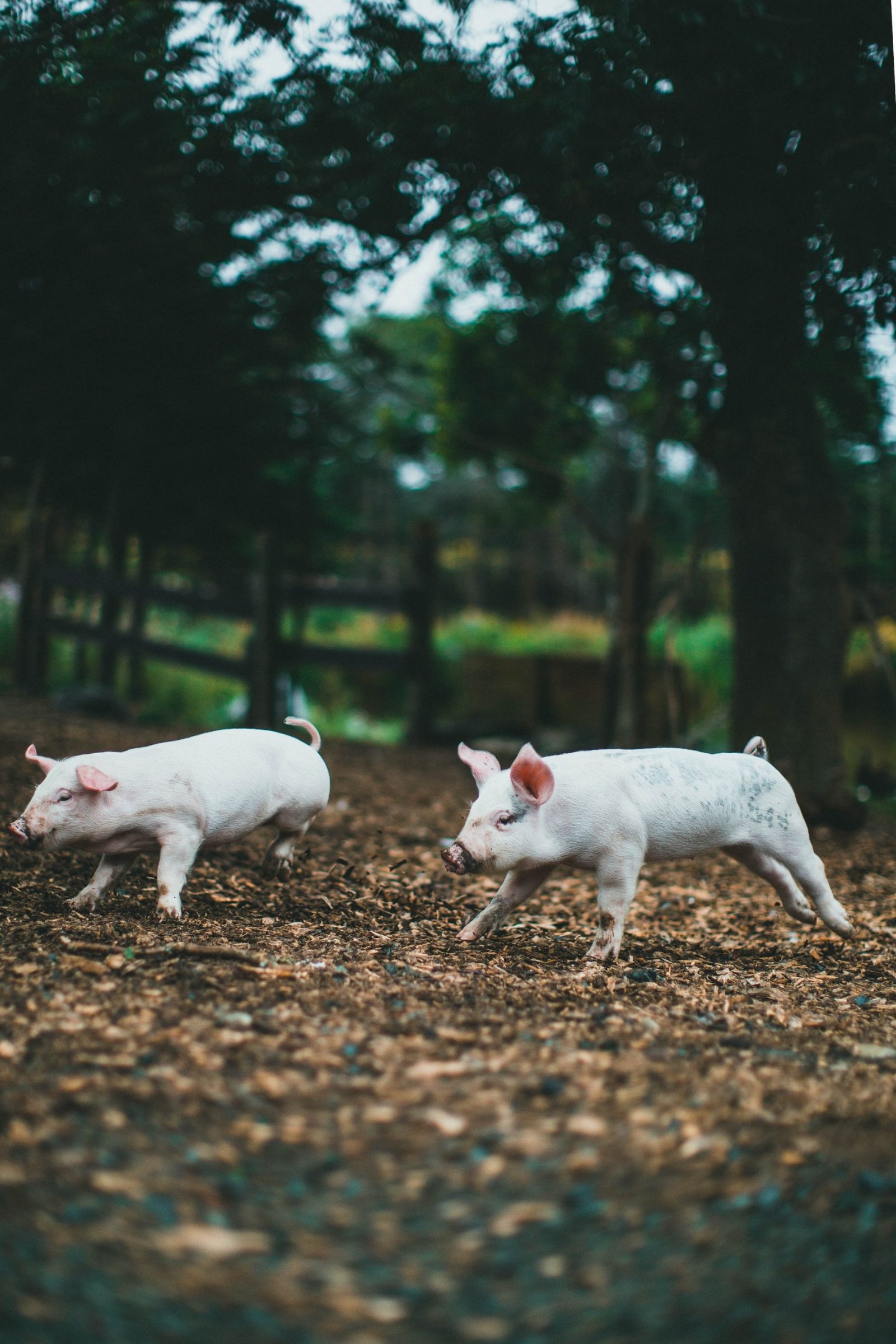
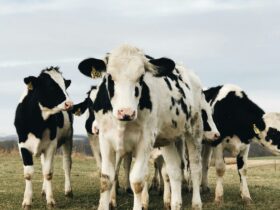
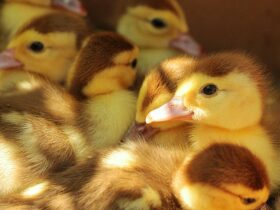
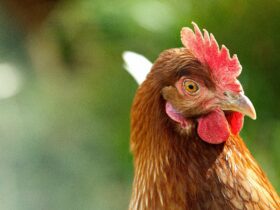
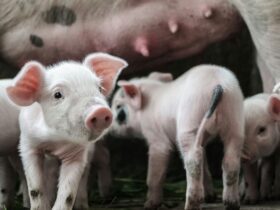
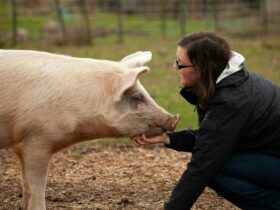

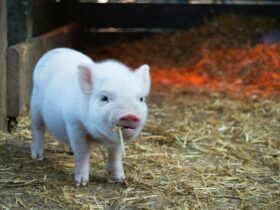

Hello!! Welcome to Anim Farm